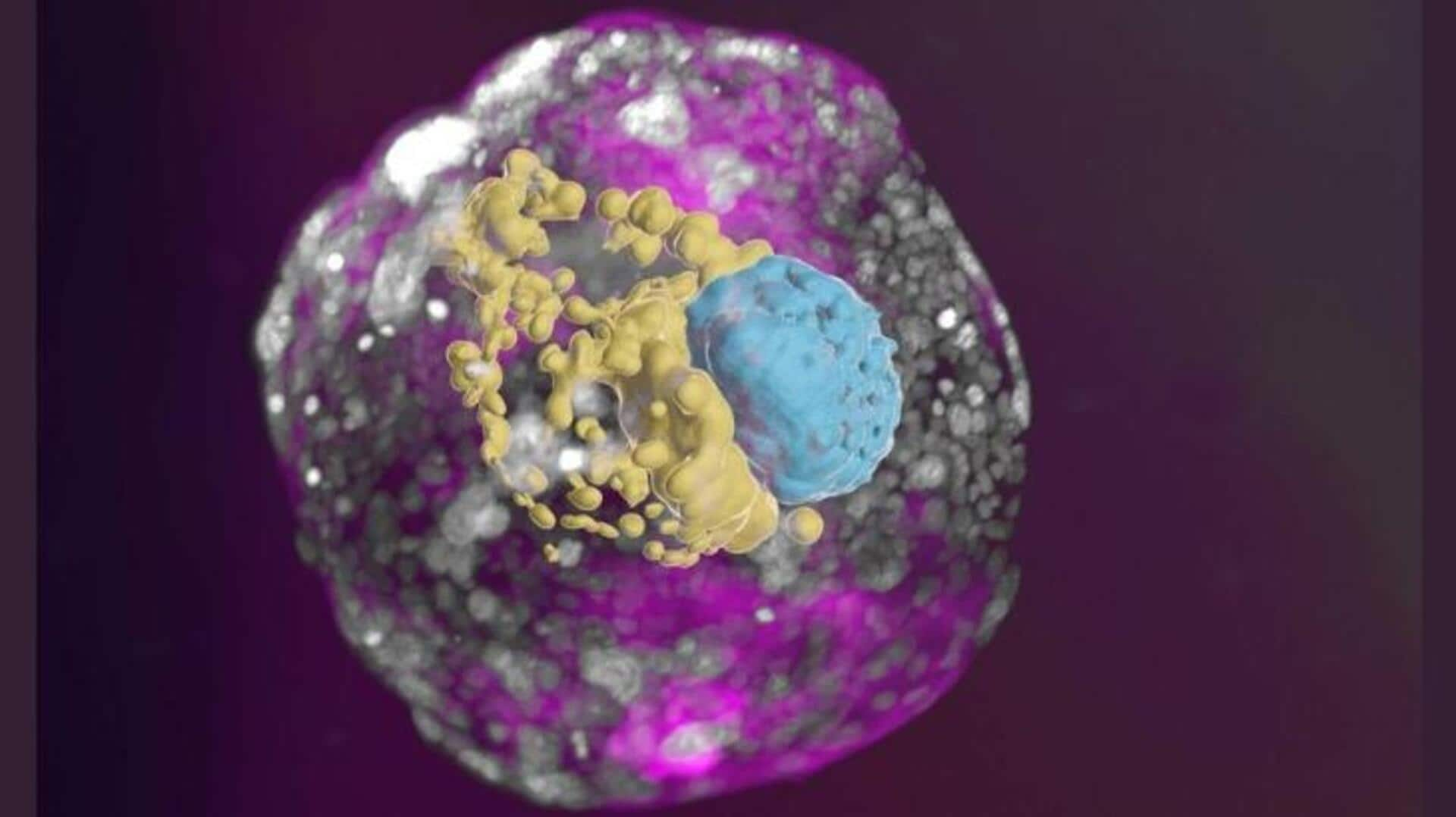
Scientists grow 'complete' human embryo models, without sperm or egg
What's the story
Researchers at the Weizmann Institute of Science in Israel have created stem cell-based embryo-like structures (SEMs) that closely resemble the development of real human embryos, without using sperm, eggs or womb. These models offer an unprecedented opportunity to ethically study early human development, potentially shedding light on the causes of birth defects and miscarriages.
Details
Mimicking real human embryo development
The team used naive stem cells, which can become any type of tissue in the body, and chemicals to encourage growth. The cells then organized themselves into structures that mimicked the features of a real human embryo. These models were allowed to develop until they reached a stage equivalent to a two-week-old embryo after fertilization, demonstrating the ability to progress to the next developmental stage.
Quote
Early unseen pregnancy challenges
"Many failures of pregnancy occur in the first few weeks, often before the woman even knows she's pregnant. That's also when many birth defects originate, even though they tend to be discovered much later," said molecular geneticist Jacob Hanna from the Weizmann Institute of Science.
What Next?
Their work will help uncover 'drama' during early pregnancy
The researchers hope their work will help uncover the "drama" that occurs during the first weeks of human development, providing insight into the causes of birth defects and miscarriages. "The drama is in the first month, the remaining eight months of pregnancy are mainly lots of growth. But that first month is still largely a black box. Our stem cell-derived human embryo model offers an ethical and accessible way of peering into this box," said Hanna.
Insights
Ethical considerations and future implications
In many countries, 14 days is the legal cut-off for normal embryo research. However, these "embryo models" are not legally considered embryos and are not governed by the same laws. Darius Widera, professor of stem cell biology and regenerative medicine at the University of Reading, emphasized that "a robust regulatory framework is more needed than ever before" as human embryo models become more sophisticated.